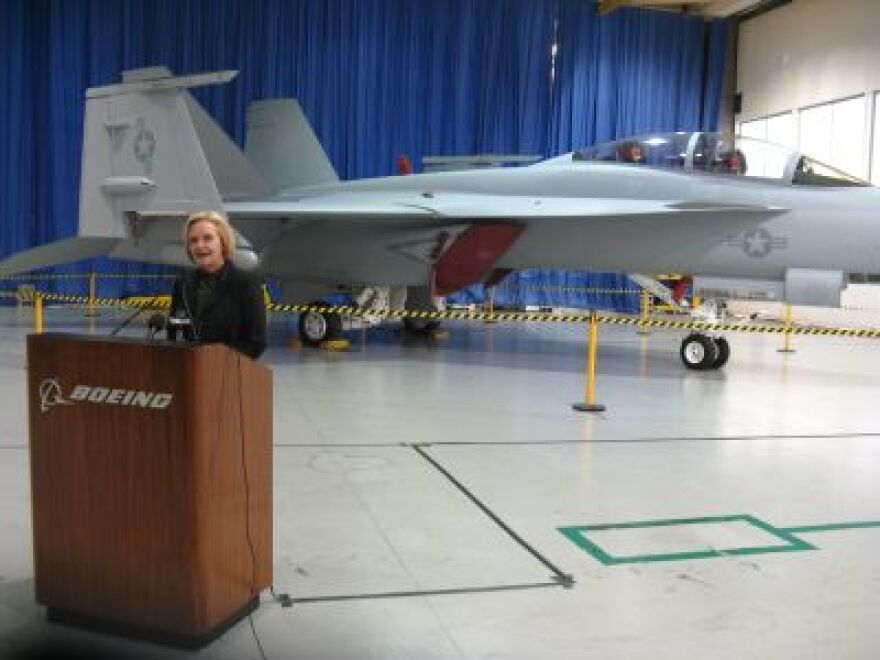Senator Claire McCaskill sayssince the supercommittee failed to come to an agreement, Congress should follow through with the automatic budget cuts.
The $1.2 trillion in cuts would come from defense and non-defense spending, but would not affect Social Security or programs for low-income people such as Medicaid.
Already some Republican senators, including John McCain, have said Congress can reverse the cuts.
McCaskill says those who voted for the provision should adhere to it.
“Why did they vote to do this if they weren’t going to take it seriously, so I do think we have to follow through with the cuts that have to occur,” she said. “If we’re just going to say ‘never mind’ then no wonder our approval rating is rock bottom.”
The Democrat says she doesn’t want to see defense funding drastically slashed but believes a compromise would prevent that.
McCaskill made her comments at Boeing in St. Louis after touring the facility.
She says Boeing’s F/A-18 Super Hornet is a good deal for the U.S. military.
The jet has come under fire as some members of Congress push for the full funding of the F-35 Joint Strike Fighter, which is being built by Lockheed Martin.
McCaskill says the F/A-18 is nearly as capable as the F-35 but costs much less.
“Eighty percent or better of the capability at half the cost; doesn’t that make sense that we would continue to work toward a blend of these aircraft on our carriers?” McCaskill said.
McCaskill says it’s a good example of a way for Washington to rein in spending.
The first Super Hornet was delivered to the US Navy in 1998.


